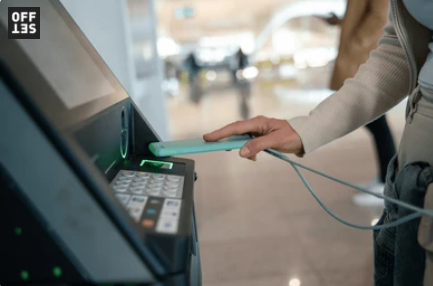According to the latest report from Visa, a trusted leader in digital payments, the Philippine payments landscape is poised for a transformative shift by 2025, driven by rising cross-border e-commerce, growing connectivity of global digital wallets, and the adoption of advanced security frameworks.

The future of payments in the Philippines, as envisioned by Visa, will be “seamless, secure, and interconnected.” Highlighting three pivotal trends, the company outlined how emerging technologies and evolving consumer habits will reshape the industry.
Visa report points to the rise of cross-border shopping
Cross-border shopping is set to become a cornerstone of the Filipino e-commerce experience.
In 2024, nearly one in five Filipino shoppers reported making overseas e-commerce purchases every month, reflecting the growing accessibility and appeal of international online marketplaces. Visa noted a significant jump in cross-border e-commerce participation among Filipinos, from 27% in 2023 to 34% in 2024.
This trend is bolstered by innovative shopping technologies, including video commerce. Blending entertainment with shopping, video-based platforms offer a more interactive and engaging experience for buyers, enabling them to explore products through live demonstrations and real-time interactions with sellers.
“Video commerce adds a dynamic dimension to online shopping, making it more immersive and enjoyable for consumers,” Visa said. With its potential to drive engagement and trust, this technology is expected to further amplify the popularity of cross-border shopping.
Connected commerce: A borderless economy

The second key trend, “connected commerce,” is revolutionizing the way businesses transact globally. Thanks to advancements in global wallet connectivity and real-time payment solutions, Filipino enterprises are increasingly enabled to reach international markets.
This interconnected framework is breaking down geographical barriers and empowering businesses of all sizes to compete on a global stage.
E-wallets, which have become a staple of the Filipino payments ecosystem, play a pivotal role in this transformation. These digital payment tools not only simplify transactions but also enable users to participate in a borderless economy.
The ability to seamlessly transact across currencies and jurisdictions is expected to drive further adoption of e-wallets among Filipinos.
Putting security at the forefront
As the payments ecosystem expands, ensuring robust security remains a top priority. By 2025, Visa predicts that dynamic security frameworks powered by artificial intelligence (AI) and machine learning will redefine the payment experience.
These advanced technologies will enable real-time fraud prevention, proactively identifying and neutralizing threats before they impact consumers.
Generative AI, another rapidly evolving technology, is expected to enhance the personalization of payment experiences. By analyzing consumer preferences and behaviors, AI will help tailor payment options to individual needs, creating a more intuitive and user-centric approach.
Visa’s commitment to security is underscored by its significant investments in AI and data infrastructure. Over the past decade, the company has allocated more than US$10 billion to bolster its capabilities, ensuring that consumers and businesses alike can transact with confidence.
“Trust is the foundation of any payment system,” Visa stated. “Dynamic security frameworks will blend cutting-edge technology with consumer trust, setting new standards for the industry.”
Earlier this month, Visa entered into a partnership agreement with Thames and the Baguio City LGU to help empower MSMEs in the city through digital payments. By empowering local businesses with the tools and knowledge they need to thrive in the digital age, this five-year partnership aims to revolutionize the way businesses operate in the Philippines’ iconic Summer Capital.
Implications for Filipino consumers and businesses

For Filipino consumers, these developments mean greater access to global markets, enhanced shopping experiences, and peace of mind in terms of transaction security. Cross-border e-commerce will not only broaden the range of available products but also offer competitive pricing and unique opportunities to discover international brands.
Businesses, particularly small and medium enterprises (SMEs), stand to benefit significantly from connected commerce. By leveraging global payment solutions and technologies, SMEs can expand their reach, tap into new revenue streams, and compete in an increasingly globalized marketplace.
A future defined by innovation
The projected evolution of e-payments in the Philippines reflects a broader global shift towards a more interconnected and technology-driven economy.
As cross-border e-commerce gains momentum, digital wallets (e-wallets) become indispensable, and AI revolutionizes security and personalization, the Philippine payments landscape is set to achieve unprecedented levels of efficiency and inclusivity.
Visa’s vision for 2025 underscores the transformative potential of technology in redefining how Filipinos shop, pay, and engage in commerce. With these advancements on the horizon, the Philippines is poised to become a model for digital payment innovation in the region.







